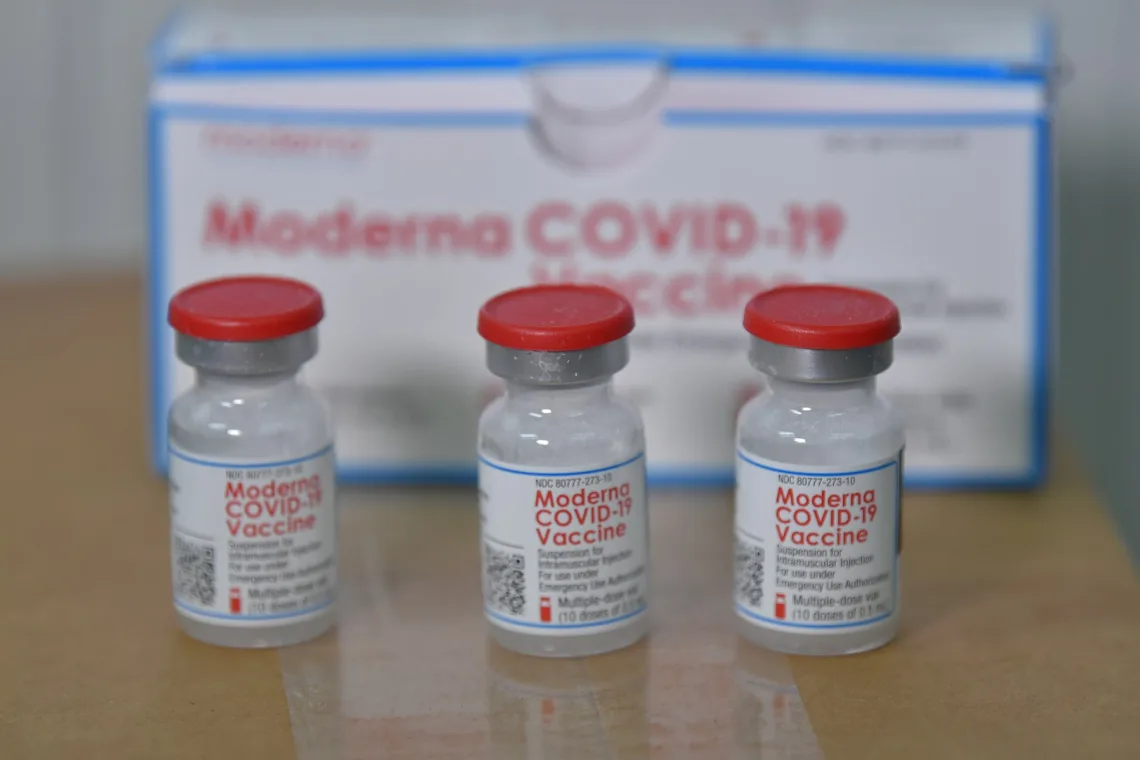Researchers in Singapore may have discovered why a small group of people face a higher risk of heart complications after receiving the Covid-19 vaccine.
A study by Duke-NUS Medical School researchers and others suggests that those with high baseline levels of RNASE2, an enzyme produced in the body that processes ribonucleic acid (RNA), may be more prone to heart problems after an injection of an mRNA vaccine .
The findings, published in the clinical journal “Med” in April, are based on a man who had developed symptoms similar to myocarditis – inflammation of the heart muscle – after receiving a booster shot with Moderna’s Covid-19 vaccine in October 2021.
The patient, described as a “healthy and fit” 42-year-old with no underlying illness or allergies, experienced muscle pain and tenderness at the injection site, writes The Straits Times.
He had taken the mRNA-based Pfizer-BioNTech vaccine for his first two shots.
Although he was healthy the first day he received his Moderna booster, he then experienced shortness of breath, and by the fourth day he was unable to move without resting periodically.
On the fifth day, he began to have chest pains if he exerted himself. He was admitted to hospital the next day, reviewing the man’s electrocardiogram showed signs similar to those seen in patients with myocarditis and pericarditis, which is inflammation of the lining around the heart.
He was discharged on the eighth day without further intervention and was able to resume normal daily activities a week later.
The patient participated in a study with 200 people about the side effects of covid-19 vaccines. It was funded by the National Medical Research Council.
The man’s participation allowed the researchers to compare blood samples before and after vaccination, and compare the samples with samples from 18 other people in the study to identify differences that could explain the heart complication.
Although the findings suggest that the heart complication was due to a number of causes, the main factor may have been the administration of mRNA vaccines to someone with a high level of RNASE2, the researchers said.
The paper suggested that modifications to future vaccines could help prevent overstimulation of RNA sensors, making such vaccines safer.
Other studies have already suggested a link between an overactive immune system and heart complications, said lead researcher Professor Ooi Eng Eong, deputy director of the Emerging Infectious Diseases Program at Duke-NUS Medical School.
The article admitted that an important limitation of the study was that the findings were based on a single case.
Prof. Ooi said it would be unrealistic and uneconomical to recruit the hundreds of thousands of people needed for a clinical trial, given how rare the incidence of heart complications after the vaccination is.
“You literally have to recruit Singapore’s entire population of more than five million people because of the low incidence of such side effects,” he said.
Speaking in Parliament on May 9, Health Minister Ong Ye Kung said cases of myocarditis after taking Covid-19 vaccines have been very rare, with 160 reports of myocarditis and pericarditis linked to the vaccines to date, out of more than 17 million doses administered. Two deaths from myocarditis – a 43-year-old woman and a 28-year-old man – have so far been linked to the Covid-19 vaccine in Singapore.
“Ultimately, it’s about ensuring that the benefits of the vaccines outweigh the risks,” says Professor Paul, principal researcher for the Integrated Innovations in Infectious Diseases project, of which the study is a part.
Given that the global corona situation has stabilised since 2020 – the World Health Organization declared an end to the global health crisis on May 5 – this is the ideal time to look at making vaccines even safer, he said, pointing out that mRNA technology is being explored for vaccines against other diseases.

